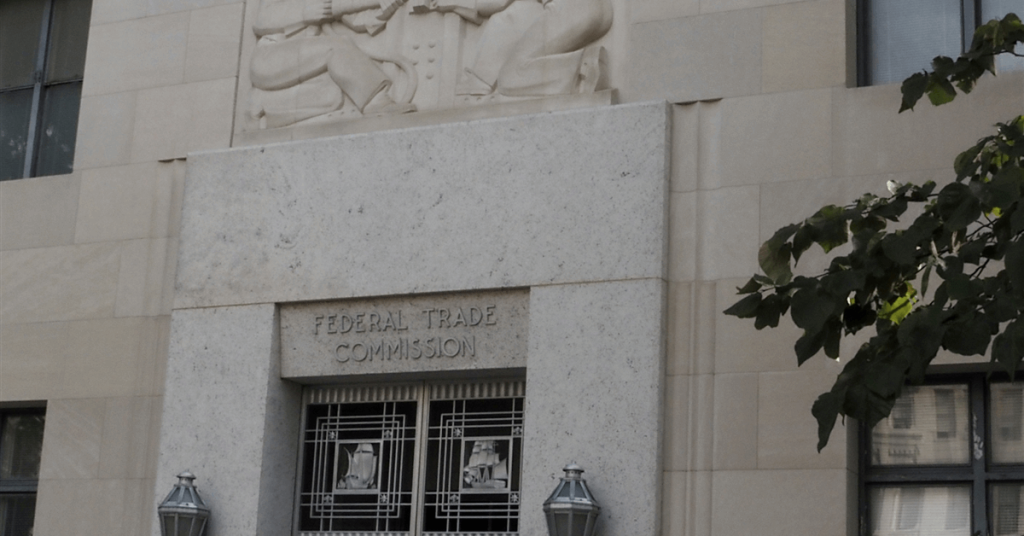The Federal Trade Commission (FTC) on Thursday canceled its consent orders for the Chevron-Hess and ExxonMobil-Pioneer mergers, saying the combinations would not harm competition.
As a result, Hess Corp. chief executive John Hess and Pioneer Natural Resources Co. founder and ex-chief executive Scott Sheffield are no longer barred from holding board or advisory positions at the enlarged Chevron and ExxonMobil respectively.
The prohibitions were part of conditions imposed by the FTC in its final consent orders for the mergers, issued days before the change of government in January. Before it granted the final consent orders, however, the FTC had last year already cleared the mergers after conducting so-called “second-request” reviews, paving the way for ExxonMobil’s completion of its acquisition of Pioneer in 2024.
On Friday, Chevron said it had completed the purchase of Hess, after the transaction was delayed by arbitration initiated by ExxonMobil to protect its preemption rights in Guyana’s Stabroek block, where Hess is a partner. Chevron said the arbitration ruling went its way.
Investigations by the FTC under the Biden administration found John Hess and Sheffield had held talks with OPEC+ officials about artificially controlling production, leading to the FTC imposing the employment restrictions. Both John Hess and Sheffield have denied the accusations.
In March 2025, two months after President Donald Trump took office, Chevron and Hess Corp., as well as Sheffield, petitioned the FTC to review the consent orders, according to separate statements by the Commission on Thursday.
In both petitions, the FTC under Trump ruled that the complaints by the previous FTC “failed to plead any antitrust law violation under Section 7 of the Clayton Act”.
The complaints “contained no allegations” that Chevron and ExxonMobil’s acquisition of their smaller rivals would be “anticompetitive”, the FTC added.
Each complaint “did not allege that the acquisition would materially increase market concentration or that it would increase the potential for coordination among oil producers, and disregarded the FTC’s Merger Guidelines and decades of precedent”, the FTC declared in both statements.
“The FTC concluded that in light of these deficiencies, maintaining the restrictions on Mr. Hess’s employment would damage the FTC’s credibility and undermine its mission”, the FTC said. “Granting Chevron’s and Hess’s petition is therefore in the public interest”.
In Friday’s announcement of the completion of the merger with Hess, Chevron said the FTC’s reversal decision clears the way for John Hess to join Chevron’s board of directors “subject to board approval”.
However, in Sheffield’s case, the FTC denied his petition because “he lacked standing”.
Yet it ruled, “However, the FTC Act authorizes the Commission to modify a prior order when it is in the public interest. In light of the complaint’s deficiencies, the FTC concluded that maintaining the restrictions on Mr. Sheffield’s employment would damage the FTC’s credibility and undermine its mission. Vacating the final order is therefore in the public interest”.
In both petitions, the FTC voted 3-0. The current FTC chair, Andrew N. Ferguson, had dissented in the consent orders now withdrawn.
To contact the author, email jov.onsat@rigzone.com
What do you think? We’d love to hear from you, join the conversation on the
Rigzone Energy Network.
The Rigzone Energy Network is a new social experience created for you and all energy professionals to Speak Up about our industry, share knowledge, connect with peers and industry insiders and engage in a professional community that will empower your career in energy.
element
var scriptTag = document.createElement(‘script’);
scriptTag.src = url;
scriptTag.async = true;
scriptTag.onload = implementationCode;
scriptTag.onreadystatechange = implementationCode;
location.appendChild(scriptTag);
};
var div = document.getElementById(‘rigzonelogo’);
div.innerHTML += ” +
‘‘ +
”;
var initJobSearch = function () {
//console.log(“call back”);
}
var addMetaPixel = function () {
if (-1 > -1 || -1 > -1) {
/*Meta Pixel Code*/
!function(f,b,e,v,n,t,s)
{if(f.fbq)return;n=f.fbq=function(){n.callMethod?
n.callMethod.apply(n,arguments):n.queue.push(arguments)};
if(!f._fbq)f._fbq=n;n.push=n;n.loaded=!0;n.version=’2.0′;
n.queue=[];t=b.createElement(e);t.async=!0;
t.src=v;s=b.getElementsByTagName(e)[0];
s.parentNode.insertBefore(t,s)}(window, document,’script’,
‘https://connect.facebook.net/en_US/fbevents.js’);
fbq(‘init’, ‘1517407191885185’);
fbq(‘track’, ‘PageView’);
/*End Meta Pixel Code*/
} else if (0 > -1 && 66 > -1)
{
/*Meta Pixel Code*/
!function(f,b,e,v,n,t,s)
{if(f.fbq)return;n=f.fbq=function(){n.callMethod?
n.callMethod.apply(n,arguments):n.queue.push(arguments)};
if(!f._fbq)f._fbq=n;n.push=n;n.loaded=!0;n.version=’2.0′;
n.queue=[];t=b.createElement(e);t.async=!0;
t.src=v;s=b.getElementsByTagName(e)[0];
s.parentNode.insertBefore(t,s)}(window, document,’script’,
‘https://connect.facebook.net/en_US/fbevents.js’);
fbq(‘init’, ‘1517407191885185’);
fbq(‘track’, ‘PageView’);
/*End Meta Pixel Code*/
}
}
// function gtmFunctionForLayout()
// {
//loadJS(“https://www.googletagmanager.com/gtag/js?id=G-K6ZDLWV6VX”, initJobSearch, document.body);
//}
// window.onload = (e => {
// setTimeout(
// function () {
// document.addEventListener(“DOMContentLoaded”, function () {
// // Select all anchor elements with class ‘ui-tabs-anchor’
// const anchors = document.querySelectorAll(‘a .ui-tabs-anchor’);
// // Loop through each anchor and remove the role attribute if it is set to “presentation”
// anchors.forEach(anchor => {
// if (anchor.getAttribute(‘role’) === ‘presentation’) {
// anchor.removeAttribute(‘role’);
// }
// });
// });
// }
// , 200);
//});

